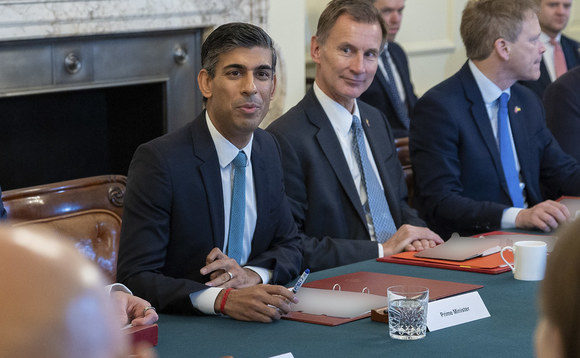After a little over 100 days in Number 10 and with the government languishing in the polls, Number 10 this morning announced it was restructuring the machinery of government to ensure “the right skills and teams are delivering for the British people”.
The reshuffle will see Business Secretary Grant Shapps take charge of a new Department for Energy Security and Net Zero that will be tasked with “securing our long term energy supply, bringing down bills and halving inflation”.
Meanwhile, Trade Secretary Kemi Badenoch will head up a new Department for Business and Trade, while also continuing in her role as President of the Board of Trade and Minister for Women and Equalities.
Lucy Frazer has been appointed Secretary of State at a new Department for Culture, Media and Sport, while Michelle Donelan will lead a new Department for Science, Innovation, and Technology, which will take over science and technology-focused activity previously managed by BEIS and the Department for Digital, Culture, Media, and Sport.
Completing the first phase of the reshuffle, Greg Hands has been appointed as chairman of the Conservative Party and a Minister without portfolio following the sacking of Nadhim Zahawi.
Further appointments to junior ministerial roles at the new departments are now expected throughout the day.
The shake-up comes at a critical time for the UK’s energy and climate policy landscape with Ministers required by the High Court to deliver an updated Net Zero Strategy by the end of March and Number 10 and the Treasury facing a flurry of warnings in recent weeks from leading business groups who fear the UK risks squandering its leadership position in the global green industrial revolution without urgent action to catalyse a new wave of clean tech investment.
The CBI, a coalition of energy industry groups, and the SMMT have all argued in recent days that the passage of the Biden administration’s Inflation Reduction Act and the proposed strengthening of the EU’s green industry support package means the UK has to move swiftly to ensure the UK does not start to lag behind its economic competitors in the development of the low carbon industries that will dominate the coming decades.
As such, green business leaders are likely to welcome the degree of continuity provided by Shapps appointment, after he made reforms to the onshore wind farm planning regime, investment in energy efficiency, and support for clean tech innovation early priorities during his brief stint at BEIS.
However, the appointment of Badenoch as Business and Trade Secretary risks highlighting continued divisions with government over the UK’s net zero plans, after the leadership hopeful last summer launched a series of attacks on the country’s climate goals.
Speaking to The Telegraph during the campaign, Badenoch insisted she was “not someone who doesn’t believe in climate change”, but argued it was “wrong of us to set a target without having a clear plan of the cost and knowing what it would entail”.
“Setting an arbitrary target like that is the wrong way to go… There is a better way of going about these things,” she added.
Badenoch’s campaign provided little detail on her alternative approach for driving decarbonisation in the UK, but did serve to cement her position as a standard-bearer for some of those on the Tory right who would like to see climate policies scrapped.
Responding to today’s reshuffle, Greenpeace’s Doug Parr argued it would make little difference to the UK’s ability to meet its climate goals unless it is provided with new powers and funding by Number 10 and the Treasury.
“Without other fundamental reforms, re-establishing a Department for Energy will be as helpful as rearranging the deck chairs on the Titanic,” he said. “It’s government policy and underinvestment that is holding back real action on the climate and energy crises, not the departments or ministers in place. Unless the new-look Department for Energy is given the freedom and funding to rapidly scale up renewable energy production – both offshore and on – to sure up domestic supply, as well as roll out a nationwide scheme to insulate the tens of millions of energy-wasting homes across the country, what’s the point?”
However, other commentators welcomed the effective revival of the Department of Energy and Climate Change, which was scrapped by Prime Minister Theresa May in her first reshuffle in 2016.
Writing on Twitter, former government advisor Josh Buckland welcomed the move, arguing it would allow for more focus on delivery against the government’s energy and climate goals. “No surprise on potential Energy Department given Rishi committed to it during summer leadership campaign,” he said. “Having worked in government with standalone DECC and merged BEIS it feels like the right call. Disruption in short-term, but more clarity and focus on delivery once it’s bedded in.”
Conservative MP Chris Skidmore, who recently published a major review for the government on the UK’s Net Zero Strategy, also welcomed the move. “Very welcome news to see the creation of a new Energy and Net Zero Department, ” he said, hailing the move as “a clear sign that government is aware of the increasing importance of co-ordinated net zero delivery as a priority”.

